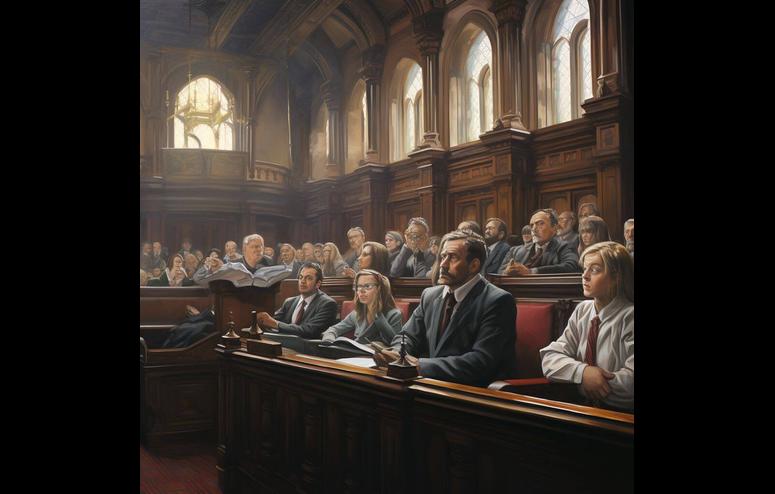Navigating the Legal Labyrinth of AI's Intellectual Property Challenge

TLDR Major tech companies like OpenAI, Google, and Meta face lawsuits for allegedly using copyrighted content in their AI models.
Legal experts debate whether AI’s use of existing content for training falls under “fair use” amidst concerns about AI replacing human jobs in creative industries.
The U.S. Copyright Office’s stance against copyrighting AI-generated works faces challenges as lawmakers consider new AI and intellectual property rights regulations.
Recent developments have seen major tech companies such as OpenAI, Google, and Meta embroiled in legal battles over alleged copyright infringements. This situation underscores the growing tension between the rapid advancement of AI technologies and existing intellectual property laws. The use of AI to create or alter digital content has raised complex legal questions, particularly regarding ownership and copyright.
In a notable incident, actor Tom Hanks highlighted the use of AI to generate fake footage in a dental company advertisement, bringing to light the ethical implications of AI in media. This incident and the lawsuits mark a pivotal moment in the intersection of AI, law, and digital content creation.
Content creators vs. AI
The method by which AI models are trained is central to these legal challenges. AI software, known for its advanced capabilities, owes its intelligence to extensive lines of code and vast datasets. These datasets often comprise material humans create, including books, images, and videos from the internet. Ryan Abbott, a legal expert from the University of Surrey, points out that the effectiveness of AI in replicating human-like outputs is directly tied to the volume and variety of human-created examples it learns from.
This approach to training AI models has sparked several lawsuits, including one from the Author’s Guild. The stock photo site Getty Images has sued Stability AI, claiming the firm’s AI model was trained on copyrighted images without permission. Similarly, comedian Sarah Silverman has filed a lawsuit against OpenAI and Meta, alleging that OpenAI’s software replicated content from her 2011 book “Bedwetter.”
These cases highlight a fundamental question: does AI’s transformation of intellectual property amount to a new creation, or is it an infringement of existing copyright?
Legal perspectives and future directions
The legal landscape is still adapting to the challenges posed by AI. Some experts, including Abbott, argue that training AI models with existing texts could fall under “fair use.” This perspective suggests that using copyrighted material for AI training does not necessarily constitute infringement. The distinction between content and style is crucial here. For instance, creating a new song in the style of a known artist is different from replicating a specific work of that artist.
However, the issue extends beyond intellectual property. The emergence of generative AI has sparked concerns about job security in creative industries. These concerns were highlighted by the recent Hollywood writers’ strike, which partly focused on the use of AI in scriptwriting.
The use of real people’s likenesses in AI-generated content adds another layer of complexity. State laws protecting an individual’s name, image, and likeness play a significant role here. For example, while an AI might create a song in the style of a famous artist, using their likeness in advertising without permission crosses legal boundaries.
The debate extends to whether AI-generated works should receive government copyright protection. A case in point is artist Jason Allen’s use of the AI tool Midjourney to create artwork, which the U.S. Copyright Office claimed did not qualify for copyright as it was predominantly AI-created. This stance is contested by experts like Abbott, who advocate for copyright and patent protection for AI-generated works, arguing this aligns to promote creative works.
As the U.S. House and Senate consider new laws to regulate AI and intellectual property, the interaction between these domains is set to become increasingly complex and contentious.
Looking ahead
The intersection of AI and intellectual property is rapidly evolving, with tech giants, creators, and legal experts navigating a labyrinth of legal and ethical challenges. The outcome of these legal battles and legislative efforts will shape the future of AI in creative industries, setting precedents for how we view and manage AI-generated content in the context of intellectual property rights. As technology advances, the need for a legal framework to keep pace becomes more apparent, highlighting the necessity for a balanced approach that fosters innovation while protecting individual and creative rights.
